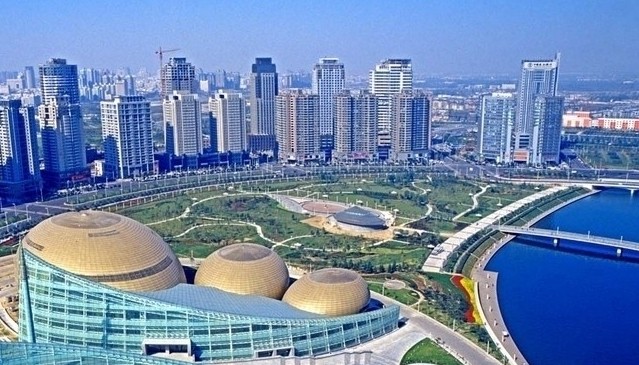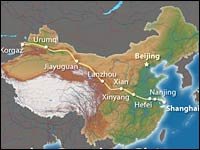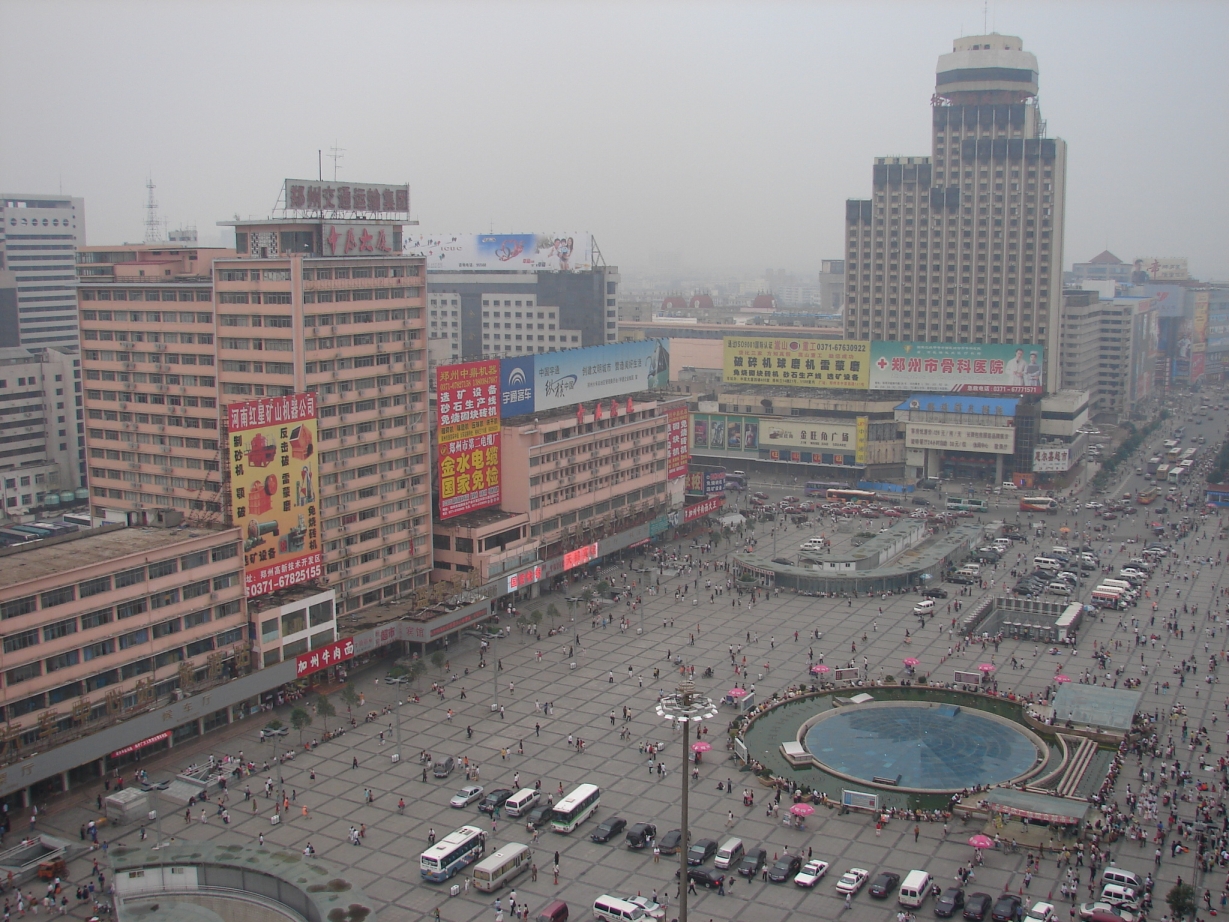Just a mile or so up the road from Henan University of Technology, is the much larger, more prestigious Zhengzhou University.
If this were the U.S., my school would be Emporia State and Zhengzhou would be the University of Michigan.
Zhengzhou dwarfs Henan in size and influence. It has about 50,000 students on its main campus, more than double the 24,000 enrollment at Henan. Zhengzhou’s campus covers 800 acres, compared with 457 acres for Henan. Zhengzhou also is the alma mater of many of Henan Province’s top government and business leaders.
I had walked around Zhengzhou’s campus before, but yesterday I got an inside look from Charles Wu, the school’s deputy director of International Exchange and Cooperation. I met him recently at a Zhenghou restaurant and he offered to show me around his university.
***
While our campus is basically just a bunch of classrooms, office buildings and dormitories, Zhengzhou U. is like a mini-city with its own restaurants, shops, post office and shuttle buses. Unlike my school, which looks like a concrete desert, Zhengzhou U. is lushly landscaped with trees, shrubs, flowers, ponds and bridges.
One thing that both schools have in common is shabby construction. Zhengzhou’s buildings are a mirror image of those at my university: peeling paint, dirty walls, cracked floors and a musty smell that permeates everything.
Mr. Wu showed me a scale model of the school, which has been designated as one of 118 national universities in China. The campus is divided into four sections, based on areas of study. There’s also a large sports stadium and gym, a major hospital, a primary school and a massive apartment complex for teachers.
“We have everything we need right here,’’ said Mr. Wu, whose job includes recruiting foreign teachers and arranging exchange programs with foreign schools.
While riding a shuttle bus around campus, I met a medical student from India named Aravind. He was on his way to a Chinese-language class. “Our courses are in English,’’ he explained, “but when you talk to patients here you must know Chinese.’’
Mr. Wu said there are about 600 students at Zhengzhou U. from India, Pakistan and Nepal. “I couldn’t get into medical school in India, so I came here,’’ Aravind said.
***
As I was leaving the campus, I noticed a lot of people walking into the stadium. When I went inside, I saw hundreds of students taking part in a job fair. The running track was lined with temporary booths set up by companies representing a wide variety of fields, from computers and real estate to banking and home furnishings.
Students carrying brochures and resumes sat at tables and chatted briefly with company representatives about employment prospects, which aren’t great because China is now churning out more college grads than good jobs.
I asked one student, who is about to graduate with an engineering degree, what he was looking for. He answered in broken English, but his message was clear. “A job for much money,’’ he said.




